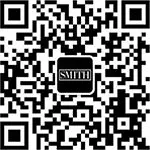Smith Makes a Dream Come True Through Friends for Wishes
For more than 40 years, Smith has built a culture dedicated to supporting and improving the lives...
The ongoing electronic component shortage across the supply chain has led chip manufacturers to pause EOL and LTB orders for aerospace and defense customers. The vast majority of chips that are currently being produced now carry the newest date codes due to these later-generation parts being in such high demand. Since A&D customers often require older-generation parts for their equipment, open-market sourcing, backed by certified quality-control processes and testing procedures, can help them navigate these challenges.
It is now within sight for the semiconductor industry to double its revenue in less than a decade to reach $1 trillion, signaling an increasing need for semiconductors and other commodities to power electronic innovations. Many of these developments are aerospace and defense (A&D) technology products, ranging from sophisticated missiles to geo tracking and other satellite communication tools.
A&D technology projects vary in size and scope, with some of the larger equipment requiring tens of thousands of electronic components. Since these products are not upgraded in the field often and are instead repaired or refurbished with the same part type, they are known to have a long lifecycle of utilization.
Optimizing the long lifecycles of A&D technology products requires manufacturers to keep an inventory or steady supply of their most commonly required semiconductors. Technology products that have long lifecycles do not traditionally follow a rapid redesign or upgrade process, making sourcing for older generations of electronic components even more important.
Component manufacturers typically work with their A&D customers to fulfill orders on allocation for older generation parts, usually issuing an EOL notice to customers with a call for last-time buys. However, to keep up with the current overwhelming demand for the latest-generation parts, some manufacturers are no longer – or much less frequently – producing their older technologies. For example, trending A&D part manufacturers such as Xilinx have yet to catch up with their backlogged demand for products, delaying EOL notices for some older parts until 2023.
The ongoing semiconductor shortage has contributed to why component manufacturers are prioritizing capacity to meet demands for the latest-generation chips. Component manufacturers are running at full capacity to produce chips carrying the latest date codes and are still not able to fully meet all customer requirements. Capacity prioritization is also leaning toward accommodations for parts that follow rapid production cycles where large-quantity orders are required frequently; most recently, these have been later-generation semiconductor parts. Since A&D infrastructure doesn’t follow this type of cycle, many customers face the issue of not meeting their supply requirements because older-generation parts are simply not being produced at the capacity they once were.
With semiconductor supplies remaining tight through the end of 2022, the industry faces a prolonged interval of increased vulnerability, making quality control and sourcing procedures a vital part of supply chain optimization. To address these issues and help our partners keep their lines active, Smith has formalized our quality control procedures, and we work with a global network of vetted suppliers.
Aerospace and defense customers experiencing EOL concerns can feel confident that the open market has quality sourcing solutions for them to get the products they need. The stringent laboratory testing requirements under both the AS6081 and AS9120 certifications help us navigate the current unprecedented conditions in the open market by offering trusted sourcing flexibility. Smith is also an established member of ERAI and GIDEP, and our memberships to these industry-leading organizations help our teams stay up to date on the latest industry information, trends, and best practices so that we maintain our leading edge in innovation and counterfeit mitigation.
Working diligently alongside industry experts and their teams can help companies achieve their long-term technology supply chain goals and navigate the rapidly evolving semiconductor market. Sourcing product from the open market and following the industry-leading testing standards under the AS6081 and AS9120 certifications can help companies gain formalized processes for anticounterfeit screening and quality assurance. The open market for electronic components can aid aerospace and defense customers in specifically meeting their EOL and LTB supply goals by expanding procurement opportunities for hard-to-find components – keeping them moving without interruption or compromise.
Keep an eye out here on our blog and our LinkedIn page for more industry news, analysis, and insights.
Smith Makes a Dream Come True Through Friends for Wishes
For more than 40 years, Smith has built a culture dedicated to supporting and improving the lives...
Nexperia Trade Restrictions Update: November 14, 2025
Smith’s team of experts brings a diverse wealth of knowledge and experience that helps us offer t...
Smith Receives AS9120 Certification at Its Singapore Operational Hub
The company achieves global accreditation to this rigorous aerospace standard
您可通过以下三种方式,轻松关注Smith微信公众号:
